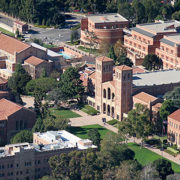The Neoliberal mindset, which reduces all human activities to monetized exchanges, converts higher education from a forum of ideas into a forum of goods and services.
Among the more troubling changes I encountered during my thirty-year career in higher education is a shift in terminology related to how administrators refer to students and how people within academia talk about each other. Increasingly, rather than talking about students and colleagues, I have heard one word to describe stakeholders at the university—customers.
IT professionals refer to faculty and staff as their customers. Administrators refer to students as customers, and the goal seems to be to provide exemplary “customer service” and make the “customer experience” at the university high quality!
On the surface, it may seem like a good idea. Students should have a good experience in college. Right? Faculty should be able to get useful assistance from the help desk. Right? We want to keep our customers happy. Right? Wrong!
Of course, providing quality teaching or IT help is a good idea, but colleges are not businesses and do not have customers. Why? Because, despite the apparent beliefs of so many higher ed administrators that a university is a “degree store” that sells education to its students, nothing is being sold. And the reconfiguring of higher education institutions as businesses trying to compete for customers to whom they can sell their “goods” is profoundly damaging to the educational endeavor.
There are several reasons why the business model is a disaster for higher education. First, businesses are focused on pleasing their customers. As an academic, I am not focused on pleasing my students but on challenging them, even making them uncomfortable with their preconceived ideas. Think of it this way. Suppose you walk into McDonald’s and order a Happy Meal. The person behind the counter responds, “Are you sure you want to do that? Perhaps you should consider the Quarter Pounder Meal because it has more protein. Or you might want to explore other options, such as a fish sandwich. Have you considered how the materials for your Happy Meal are sourced or how much the people working here are paid? Could there be exploitation involved? Let’s break the patrons in the dining room into groups and discuss the issues related to your order. Everyone, please count off by fours!”
Somehow, I doubt most would hang around to purchase their Happy Meal. But those questions are precisely what goes on in a good classroom—students, not customers, are challenged to think about their world and ideas in new ways, and sometimes those new ideas are disturbing. How many businesses are focused on making their customers uncomfortable about what they are purchasing? Not many.
On the contrary, the goal is to make customers at ease so they mindlessly will buy more stuff—grocery store music is a good example. For example, when buying a gas guzzler, the salesperson says, “You understand that this car gets terrible gas mileage and pollutes like crazy. Right? How do you feel about that?”
A university is not a business. It is a repository for the collected knowledge of humans and an incubator for ongoing knowledge production. It is a forum in which people can share and debate ideas. No one buys these ideas because they are not for sale—they are free and open for any student, professor, or staff member (and often the general public) to encounter and engage with. The neoliberal mindset, which reduces all human activities to monetized exchanges, subverts the entire process because it turns a forum of ideas into a forum of goods and services.
I can imagine a parent right now becoming annoyed as they think, “Stupid ivory tower professor! I pay a pile of money for my kid’s education at X University! Damn right, I’m buying something! My kid and I are customers, and my tuition dollars are paying your salary!”
While it’s true that tuition dollars pay the salaries of faculty, staff, and administrators, you aren’t buying your kid’s education. When you write that tuition check or take out an absurdly large loan, you are paying a user fee to support an institution that is a community of learners. You are not purchasing a product, and, sorry, there is no ROI despite what many universities will tell you.
When you write the check, you provide a user fee that supports the institution and creates a positive learning environment for the entire academic community—not just your kid. The institution has an obligation to provide that environment, and your kid has an obligation to do something with it. It is their responsibility to use the resources of the university, which are usually vast, to improve their understanding of the world and consider how what they learn can be applied in their lives.
Again, the business/customer model doesn’t work. Let’s go back to your Happy Meal. How would you feel if you walked into McDonald’s and they handed you a bunch of ingredients with this comment, “Here you go! I’m here to discuss what to do with these ingredients. We will make every effort to create a strong environment for you to figure out how to combine these ingredients in a way that works well for you. But it’s your responsibility to decide what to make with the ingredients and what to do with what you make.”
Again, I don’t think most people would hang out for long. When you buy something, it is supposed to come complete—unless you buy a product like a plastic model car kit. In that case, the kit comes complete, and the customer assembles it, which is the point of the product. But when you buy that 1968 GTO model, you expect it will look like a 1968 GTO at the end. When students enter my class, I have no idea what they will do with their college career, and the product of their education will be different for every student. It’s up to them to decide what the result of that educational process will become.
There are, of course, many other problems with thinking of universities as businesses.
In business, the bottom line is measured in monetary profits. What’s the bottom line at a university? How can it be monetized? Can you assign a monetary value to critical thinking and the ability to analyze and assess problems? I don’t think so. But the business mindset falsely makes it seem like this can be accomplished.
Another problem is how you get access to the learning community that is a university. For example, when you buy that Happy Meal, you don’t apply to your local McDonald’s, hoping you’ll gain permission to enter based on your merit as a consumer of cheeseburgers. Instead, you walk in, hand over your credit card, and leave with your burger and fries. That’s how being a customer at a business works. It’s not how being a student works.
Students are admitted to the university based on their accomplishments and perceived potential, and the admission process gives them access to the resources of the learning community. After four years, they don’t walk out with a nice little bag filled with knowledge and a side of college spirit. Instead, they hopefully have embodied a combination of knowledge and intellectual abilities that can be applied to their lives as they see fit. For many, it will be to build a career. For others, their college experience will have been about learning new things and seeing the world in new ways—without much concern about how that will translate into a particular job. How students use what they learn in college is up to them, and for many, it is not only about post-graduation monetary profits.
A university’s business mindset and customer-service model subvert the institution’s mission. It reconfigures the academic atmosphere from an environment that challenges people intellectually to a conveyor belt leading to a job. It’s precisely that mindset that led to the Varsity Blues Scandal, where wealthy parents gamed the system to increase the admissions chances for their academically mediocre kids.
While those involved with “Varsity Blues” bear responsibility for their actions, the business mentality throughout higher education has created an environment where parents view a college education as ROI rather than being about learning and personal development. Thus, it’s easy to see a bribe to coaches as just another “investment” in the quest that matters to those parents—ensuring their kids get a “good” job, which is high paying. Unfortunately, it also leads to a mindset among some students and parents that grades are open to negotiation and manipulation, regardless of the quality of work a student produces or their willingness to engage in learning.
Turning higher education institutions into businesses by talking about ROI and treating students and others like customers generates a misguided sense of what a university is about. It shifts the idea of a university or college from a community of learners focused on knowledge and personal/intellectual growth to a shopping mall where people purchase a degree with good grades and then sell things in the business world.
This neoliberal transition I’ve observed throughout my career devalues the true mission of a university–to promote the public good and improve society through research and education. In so doing, it degrades the capacity of colleges and universities to function as learning communities in which ideas are shared and debated rather than purchased and sold.



